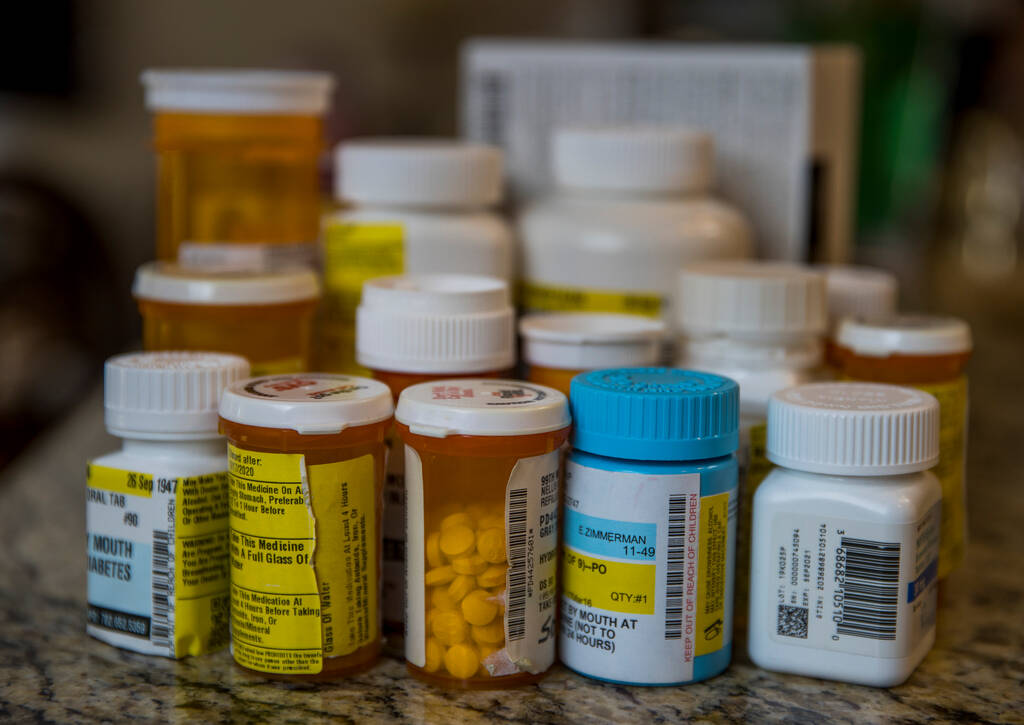Prescription shortage is worst they’ve seen, Nevada pharmacists say
Nevada pharmacists say the nationwide medication shortage is the worst they have seen in their careers.
“In 2023, the shortages are the worst that they probably have ever been,” said Judi Mattorano, president-elect of the Nevada Society of Health-System Pharmacists.
There were 309 active drug shortages across the United States as of June 30, according to the American Society of Health-System Pharmacists. That’s just 11 short of the all-time high in 2014.
And it’s not just one class or type of drug being affected. Medications “across the board” are experiencing shortages, said Mattorano, who has worked as a pharmacist in Las Vegas for more than 20 years.
Some of the most significant shortages affecting patients, pharmacies and hospitals are chemotherapy and ADHD medications, said Michael Ganio, senior director of pharmacy practice and quality at the American Society of Health-System Pharmacists.
Some drugs, like antibiotics, can be easily supplemented with a similar drug. But others, like those used to treat attention-deficit/hyperactivity disorder, can take physicians and patients months to figure out the right combination and dosage.
“For an ADHD medication, it may be a couple of months before you’re starting to see the full effect of the effectiveness of that drug,” Ganio said. “It’s not something you can just switch from one to another. It has to be done carefully.”
And for chemotherapy drugs, shortages can mean that a hospital or health system is making decisions on which patients receive the limited supply first.
Other medications short
Other medications commonly used in hospitals are scarce, too. Magnesium citrate, a laxative used to prepare patients for colonoscopies, was recently on back order for more than 10 weeks, Mattorano said.
In hospital pharmacies, managing shortages takes up resources, said Adam Porath, vice president of pharmacy at Renown Health in Reno.
When there’s a shortage, pharmacists are tasked with finding safe alternatives or using raw materials to create substitute medications, a process known as compounding.
“It can potentially be a patient safety issue because you’re relying on a human to make something rather than something that’s been commercially manufactured,” Porath said.
When an alternative drug is available, it’s often more expensive.
“People who can’t afford their medication to begin with, now they’ve got to go to a different class of drugs to be able to get treatment,” Mattorano said.
How patients might be affected
The reasons that different medications are experiencing a shortage varies widely.
In hospitals, generic injectable medications, like epinephrine, are often hard to come by because manufacturers are not able to make a large profit on the products, and the few still producing them are hit with high demand.
A major issue, however, is manufacturing plants not being able to produce quality products, pharmacists said.
“Whether that’s done through some sort of official FDA program or a third party … purchasers need to be incentivized to spend more on manufacturers that are investing in their quality systems, is what it comes down to,” Ganio said.
And some drugs, like opioids and other pain medications, are strictly regulated by the DEA. Pharmacies are allotted a specific amount of the drugs each month, so they sometimes run out.
Ganio said oftentimes patients are not aware there’s a shortage.
“Talk to your prescriber, talk to your pharmacist to understand what’s happening and how you might be affected and to make sure that, you know, the alternatives are appropriate,” Ganio said.
Contact Taylor R. Avery at TAvery@reviewjournal.com. Follow @travery98 on Twitter.

















